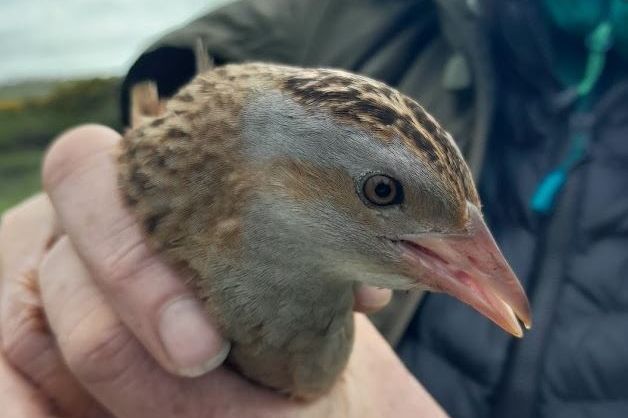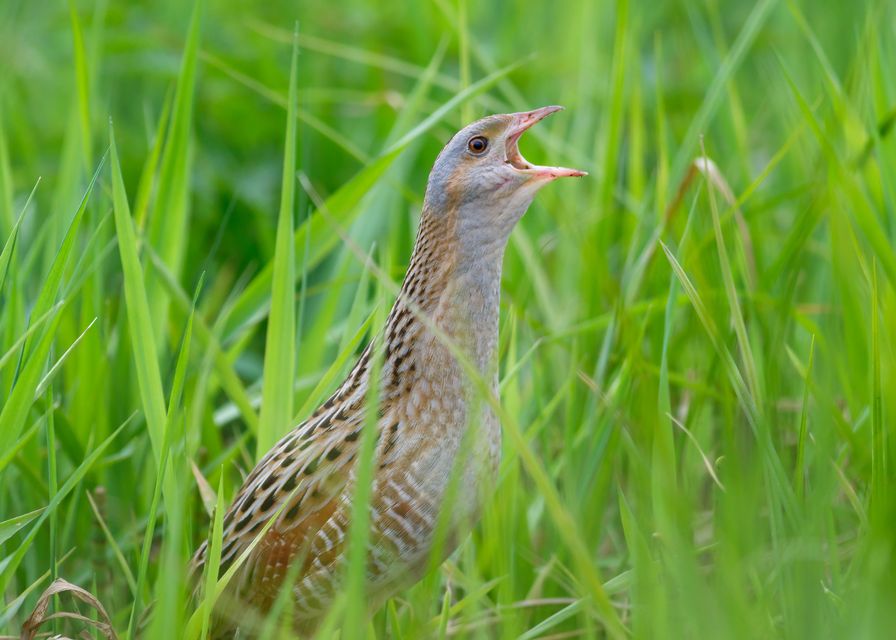An additional 48 birds were recorded in Ireland this year, a small number but which nonetheless represents a 20pc increase on 2024.
Since efforts to save the corncrake were stepped up in 2018, the number in the core breeding areas of Donegal, Mayo and Galway have increased by 70pc.
With just 281 confirmed records, the future of the species is still uncertain but agencies working to protect them were thrilled to see the progress.
Dr John Carey, who manages the Corncrake LIFE project, said the increase in the last few years was “astounding”.
Corncrakes are still very vulnerable and will need specialist support here in Ireland
“We have to remember that these birds were on the fast track to local extinction in Ireland,” he said.
“Corncrakes are still very vulnerable and will need specialist support here in Ireland for some time to come, but they are really moving in the right direction now.”
Corncrakes were once widespread in Ireland and their distinctive croaky call was one of the most common sounds of early summer, but loss of meadow habitats has decimated them.
Outside of the core counties, tiny numbers have been recorded in Kerry, Cork and Waterford, but they are absent elsewhere.
The numbers in core breeding areas have increased dramatically
Since 2021, the National Parks and Wildlife Service (NPWS) has run the EU-funded Corncrake LIFE project that rewards farmers for leaving sites unmowed all summer and allowing patches of nettles and crops to stand so the ground-nesting bird can hide and raise its young.
When it comes to harvesting, farmers and agricultural contractors undertake to cut from the centre out to give any birds in the field time and space to escape.
The use of “flushing bars” on machinery also warns the birds in good time that danger is approaching.
A group of 250 farmers are now involved in the project, allowing corncrake protections on almost 1,500 hectares of land.
Predator control is also deployed as the birds are vulnerable to foxes. Other predatory birds will also pose a threat to their chicks.
Junior minister for Nature, Heritage and Biodiversity, Christopher O’Sullivan, praised the initiative and welcomed its results.
“It’s wonderful to see these impressive results which are the direct outcome of positive collaboration between farmers, landowners and the NPWS,” the Cork Fianna Fáil TD said.
“The NPWS is committed to ensuring this work continues as it has become a model for community-focused nature conservation.”

